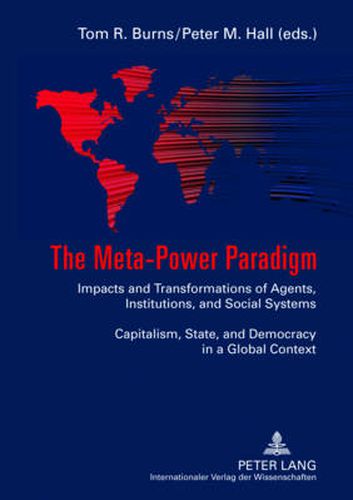Readings Newsletter
Become a Readings Member to make your shopping experience even easier.
Sign in or sign up for free!
You’re not far away from qualifying for FREE standard shipping within Australia
You’ve qualified for FREE standard shipping within Australia
The cart is loading…






This work presents, elaborates, and illustrates what is arguably the most important concept in the social sciences: power. It focuses particularly on a major class of power phenomena, meta-power, that is, power over power, transformative and structuring power. This encompasses powers to establish, reform, and transform social systems (institutions, power hierarchies, cultural formations, and socio-technical and infrastructural systems). Understanding meta-power is essential to the effective analysis of the formation of societal structures, their dynamics and evolution. This collection presents numerous illustrations and case studies at local, meso, and macro levels, showing how meta-powering is mobilized and operates in different contexts. The book should be of particular interest to business and management researchers, anthropologists, historians, legal scholars, political scientists, and, of course, sociologists.
$9.00 standard shipping within Australia
FREE standard shipping within Australia for orders over $100.00
Express & International shipping calculated at checkout
This work presents, elaborates, and illustrates what is arguably the most important concept in the social sciences: power. It focuses particularly on a major class of power phenomena, meta-power, that is, power over power, transformative and structuring power. This encompasses powers to establish, reform, and transform social systems (institutions, power hierarchies, cultural formations, and socio-technical and infrastructural systems). Understanding meta-power is essential to the effective analysis of the formation of societal structures, their dynamics and evolution. This collection presents numerous illustrations and case studies at local, meso, and macro levels, showing how meta-powering is mobilized and operates in different contexts. The book should be of particular interest to business and management researchers, anthropologists, historians, legal scholars, political scientists, and, of course, sociologists.